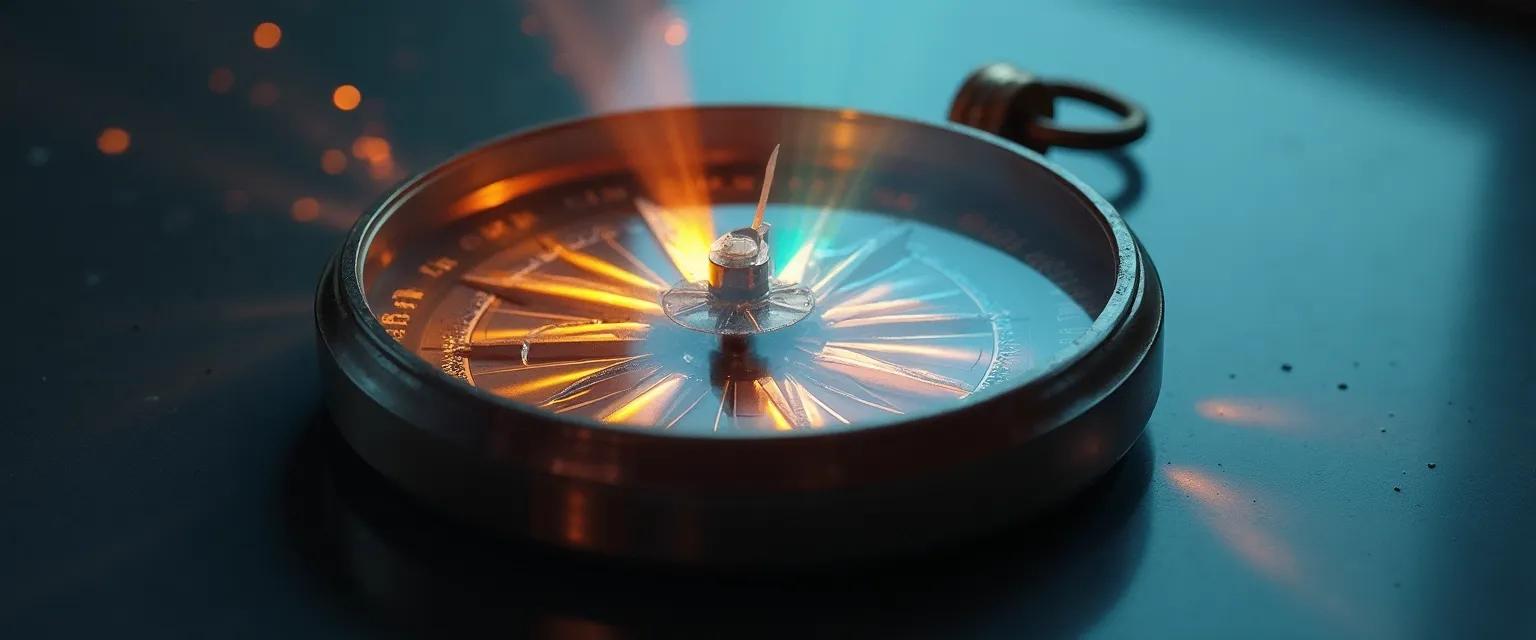7 Signs You Need to Recalibrate Your Healthy Self-Awareness Compass
Ever feel like your internal compass is spinning in circles? Healthy self-awareness acts as that reliable navigator, pointing us toward growth and away from repeating the same mistakes. But even the most finely tuned instruments need recalibration sometimes. Developing healthy self-awareness isn't about harsh self-criticism—it's about gaining an accurate, compassionate understanding of how you operate in the world.
When our self-perception drifts off course, we often don't realize it until we've crashed into the same obstacles repeatedly. The good news? Recognizing the signs that your healthy self-awareness needs adjustment is already a significant step toward recalibration. These seven indicators serve as warning lights on your dashboard, signaling it's time for a tune-up of your self-perception mechanisms.
Let's explore these signals and discover practical techniques to reset your healthy self-awareness compass without falling into the trap of self-judgment. After all, recalibration isn't about fixing what's broken—it's about fine-tuning what already works.
The First 3 Signs Your Healthy Self-Awareness Needs Adjustment
1. Feedback Blindness
When people's perceptions of you consistently surprise or confuse you, your healthy self-awareness might need attention. This disconnect between how you see yourself and how others experience you creates blind spots that limit your growth. You might dismiss feedback as incorrect or feel defensive when others share their perspective.
Recalibration technique: Practice the "feedback pause"—when receiving feedback, take a deep breath and simply say "thank you for sharing that" before responding. This creates space to consider the information without immediate rejection.
2. Emotional Overreactions
Find yourself responding to minor situations with major emotions? When small frustrations trigger disproportionate anger or minor setbacks lead to overwhelming disappointment, it's a sign your healthy self-awareness compass needs adjustment. These reactions often happen because we're not recognizing the true source of our feelings.
Recalibration technique: Use the 5-4-3-2-1 grounding method when emotions intensify. Name 5 things you see, 4 things you can touch, 3 things you hear, 2 things you smell, and 1 thing you taste. This anxiety management technique creates distance between you and overwhelming emotions.
3. Recurring Relationship Patterns
If you find yourself in the same conflicts across different relationships, your healthy self-awareness might need fine-tuning. When you're the common denominator in repeated relationship dynamics, it's worth exploring your contribution to these patterns.
Recalibration technique: Identify one recurring pattern and ask yourself: "What need am I trying to meet through this behavior?" Often, understanding the underlying need helps break the cycle.
4 More Indicators of Imbalanced Healthy Self-Awareness
4. Difficulty Identifying Emotions in Real-Time
If you frequently realize how you felt about a situation only hours or days later, your emotional awareness component needs strengthening. Healthy self-awareness includes recognizing emotions as they happen.
Recalibration technique: Practice the "emotion check-in" by pausing three times daily to ask, "What am I feeling right now?" Name the emotion without judgment.
5. Gap Between Intentions and Impact
Regularly hearing "that's not what I meant" coming from your mouth? This disconnect signals an opportunity to align your intentions with their actual effects on others.
Recalibration technique: Before important conversations, ask yourself: "How might this message be received differently than I intend?" This mindfulness technique builds perspective-taking skills.
6. Constant Self-Comparison
Measuring yourself against others more than against your own progress indicates imbalanced self-awareness. This habit distorts your perception of personal growth.
Recalibration technique: Redirect comparison energy by asking, "What have I improved at since last month?" This focuses attention on your unique journey.
7. Inability to Acknowledge Both Strengths and Weaknesses
Either dismissing compliments or being blind to areas for growth suggests your healthy self-awareness needs balancing. Complete self-awareness embraces both capabilities and limitations.
Recalibration technique: Practice balanced self-reflection by completing this sentence daily: "Today I demonstrated strength in ___ and I could grow in ___."
Recalibrating Your Healthy Self-Awareness for Long-Term Growth
Maintaining healthy self-awareness isn't a destination but an ongoing practice. The fact that you're recognizing these signs already demonstrates your commitment to personal growth. Remember that recalibration isn't about harsh self-judgment—it's about gentle course correction.
Try incorporating one recalibration technique into your daily routine this week. Small, consistent adjustments lead to significant shifts in your healthy self-awareness over time. As your internal compass becomes more reliable, you'll navigate life's challenges with greater ease and authenticity.
Ready to start your recalibration journey? Begin with whichever sign resonated most strongly with you. Your path to healthy self-awareness starts with that first step of recognition, followed by compassionate action.




